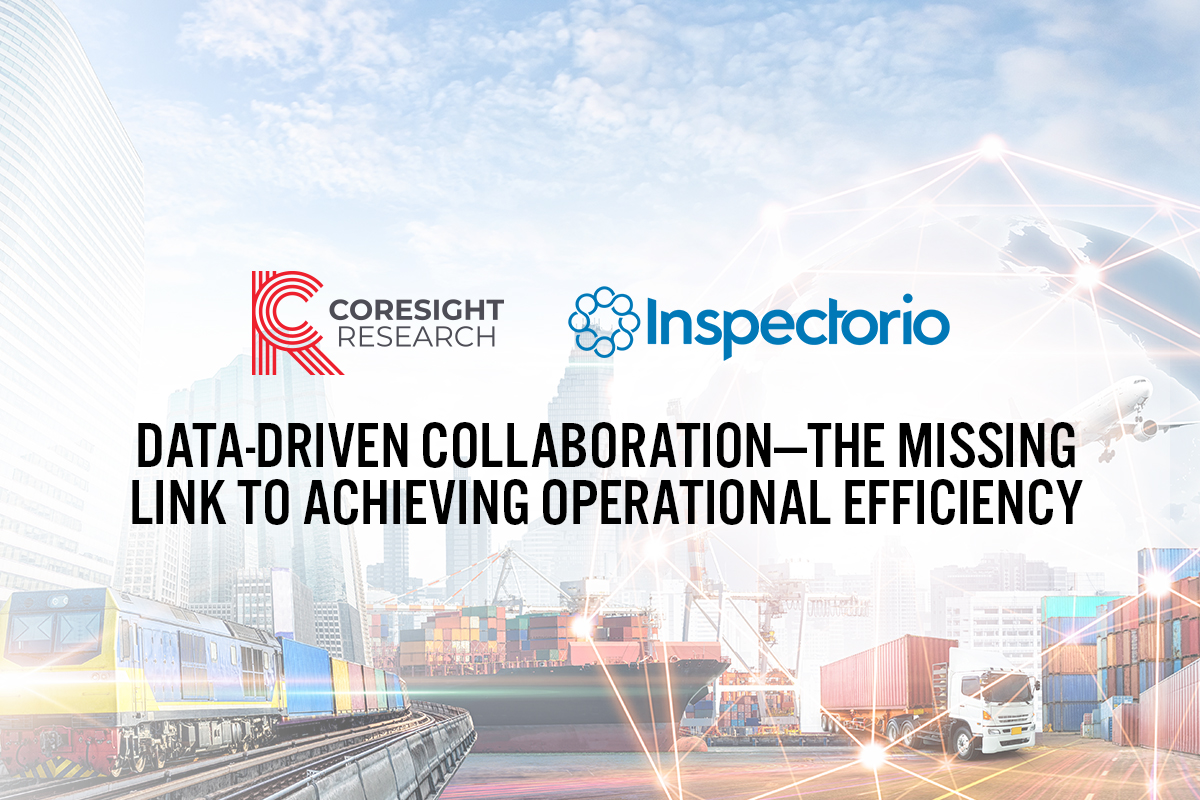
DIpil Das
On May 6, 2021, Coresight Research hosted an online event, entitled “Data-Driven Collaboration: The Missing Link to Achieving Operational Efficiency” in conjunction with Inspectorio, a cloud-based SaaS (software-as-a-service) platform that enables its clients to digitalize quality control and compliance monitoring processes.
Deborah Weinswig, CEO and Founder of Coresight Research, moderated the event, which brought together Inspectorio and two leaders from selected textile companies to share insights about the use of data in ensuring operational efficiency in the supply chain:
 Weinswig, Klein, Najeem and Ahmed discuss how data-driven collaboration may be the missing link to achieving operational efficiency
Weinswig, Klein, Najeem and Ahmed discuss how data-driven collaboration may be the missing link to achieving operational efficiency
Source: Coresight Research [/caption] 3. Machine Learning Will Be Commoditized but Must Facilitate Collaboration The panelists discussed how, in the future, ML technologies and algorithms will become cheaper to build and easier to implement—meaning that ML will get commoditized. The benefits of adopting ML are in automation (saving time) and improving accuracy/predictability. However, even with ML technology, if users are unable to view data in a holistic manner, collaboration between stakeholders will be restricted and operational efficiency will be negatively impacted. Retail companies must therefore view ML as an enabling technology, without losing sight of the importance of data-driven collaboration.
- David Klein, President of Inspectorio
- Areeb Ahmed, Executive, Quality Management Systems at Yunus Textile Mills
- Mohamed Mohideen Najeem, Head of Quality Assurance at Padma Textiles
Data-Driven Collaboration: Three Key Insights
1. Digitalization of Quality Assurance Saves Time, Reduces Costs and Provides Centralized Data There is a rising need for the digitalization of quality assurance and compliance across the supply chain—in other words, transitioning from manual processes to digital platforms. Manual processes are tedious and time-consuming, driving operational inefficiencies. Against the backdrop of a turbulent year due to the global pandemic, it has become even more important for companies to reduce such inefficiency. Najeem and Ahmed highlighted the benefits that Padma Textiles and Yunus Textile Mills, respectively, have seen since making this transition. In addition to saving time and costs by eliminating manual tasks, digital platforms enable companies to access centralized, real-time data on the same network. The panelists emphasized that the improved quality and increased visibility of data among multiple stakeholders is the starting point for achieving operational efficiency. 2. Collaboration and Transparency Fosters Better Relationships Among Key Stakeholders Simply having centralized data is not enough; Klein stressed that it is necessary to ensure key stakeholders across the supply chain are looking at the centralized data together, as this facilitates effective communication and collaboration. Stakeholders can use the data to gain insights into performance and identify opportunities for improvement in quality assurance processes. Collaborative efforts in analyzing the data drives accountability and transparency, thus fostering better relationships through the supply chain. Klein added that collaboration is a key component in “pushing the supply chain forward.” Brands and retailers now realize the need to collaborate with factories and vendors as true partners, due to the disruption caused by the Covid-19 pandemic and related changes in operations, such as remote working. Ahmed suggested that visibility and transparency helps retail companies to build trust among stakeholders by providing customers/clients insight into internal processes—such as by giving simple updates when products pass quality checks, which also adds more touchpoints to foster relationships. [caption id="attachment_128202" align="aligncenter" width="725"] Weinswig, Klein, Najeem and Ahmed discuss how data-driven collaboration may be the missing link to achieving operational efficiency
Weinswig, Klein, Najeem and Ahmed discuss how data-driven collaboration may be the missing link to achieving operational efficiency Source: Coresight Research [/caption] 3. Machine Learning Will Be Commoditized but Must Facilitate Collaboration The panelists discussed how, in the future, ML technologies and algorithms will become cheaper to build and easier to implement—meaning that ML will get commoditized. The benefits of adopting ML are in automation (saving time) and improving accuracy/predictability. However, even with ML technology, if users are unable to view data in a holistic manner, collaboration between stakeholders will be restricted and operational efficiency will be negatively impacted. Retail companies must therefore view ML as an enabling technology, without losing sight of the importance of data-driven collaboration.